Brown Arts Institute
Residual Noise: SRST Spatial Audio Concert
April 3, 2025
CONCERT
A concert by faculty and researchers affiliated with RISD’s Studio for Research in Sound and Technology (SRST).
Residual Noise: SRST Spatial Audio Concert
April 3, 2025
CONCERT
A concert by faculty and researchers affiliated with RISD’s Studio for Research in Sound and Technology (SRST).
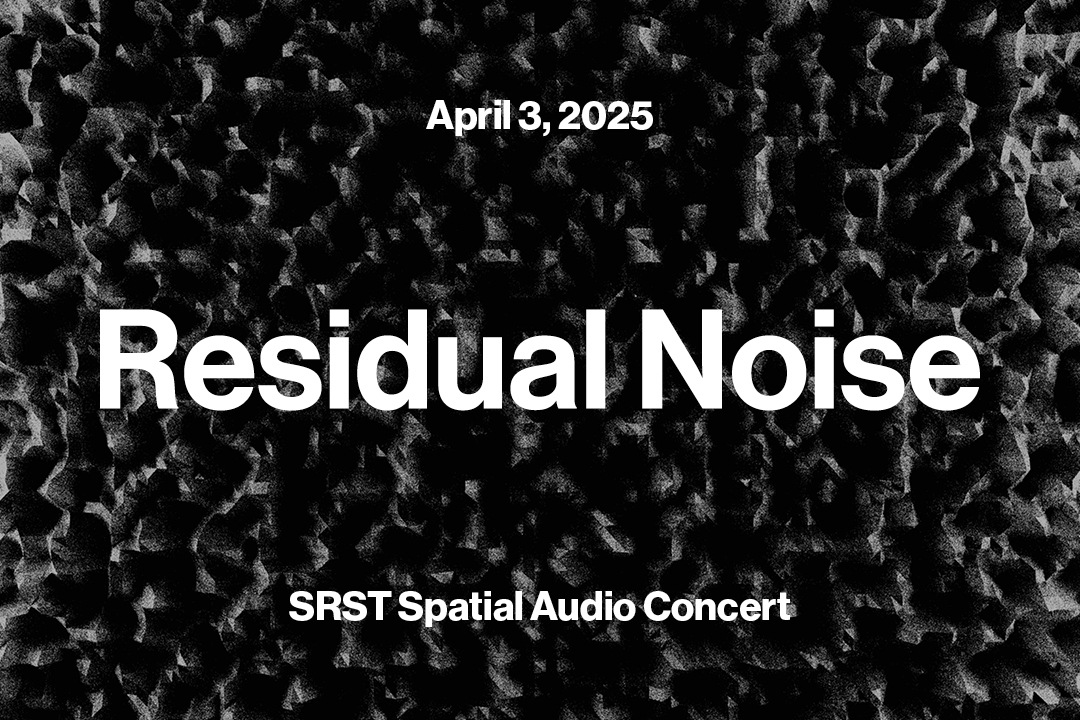
SRST Spatial Audio Concert
7:00 PM – 9:00 PM
RISD, 20 Washington Place Auditorium
A concert by faculty and researchers affiliated with RISD’s Studio for Research in Sound and Technology (SRST). The program will feature works utilizing the IKO 3D audio speaker, a custom Wave Field Synthesis array, and 10.2 channel surround.
Program Notes
About the Artists
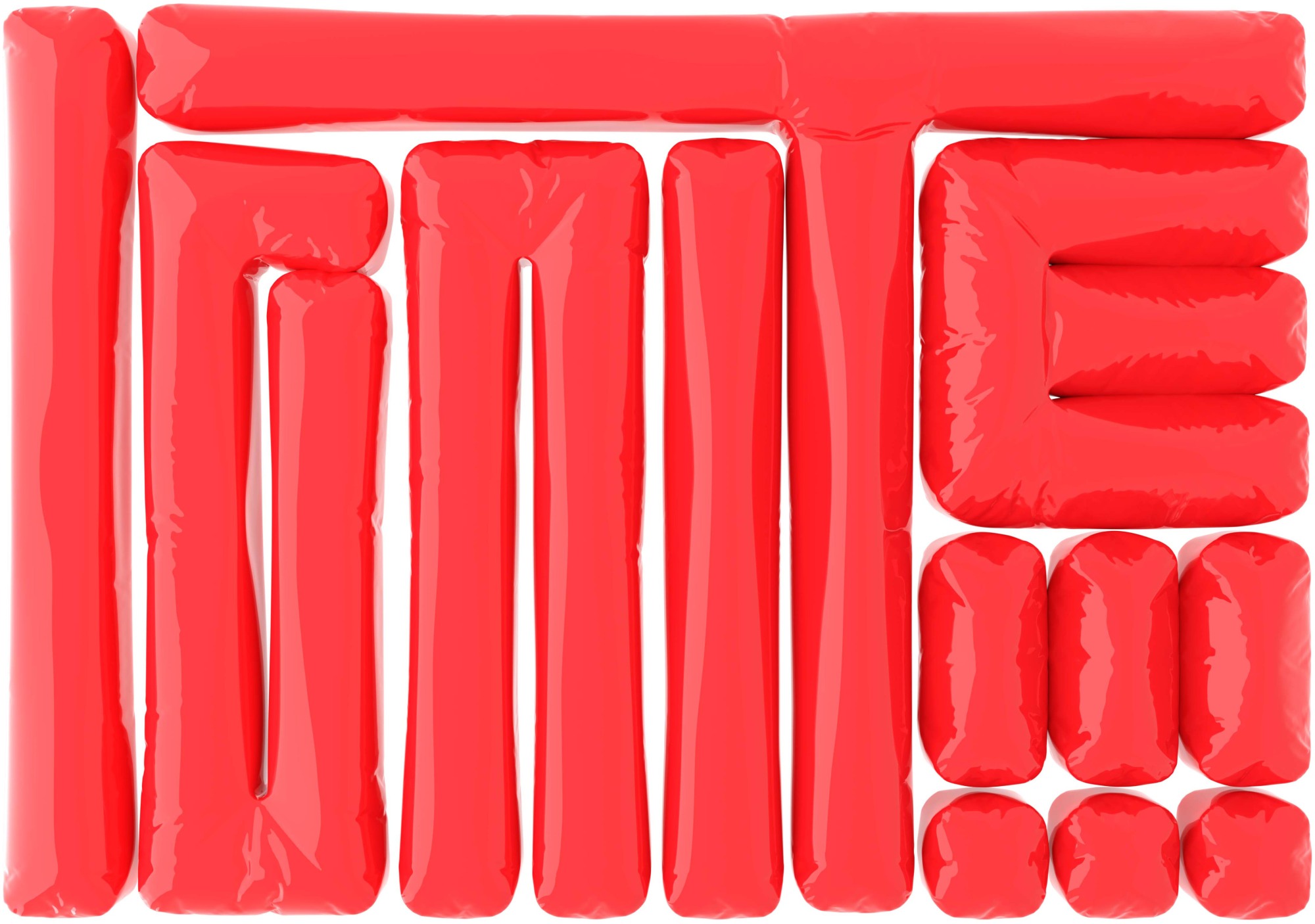
Brown Arts’ IGNITE Series uplifts the spirit of artistic collaboration across Brown, Providence, the Rhode Island region, and beyond. Ignite your creative curiosity through this multi-year series of programs, activations, interventions, and investigations.

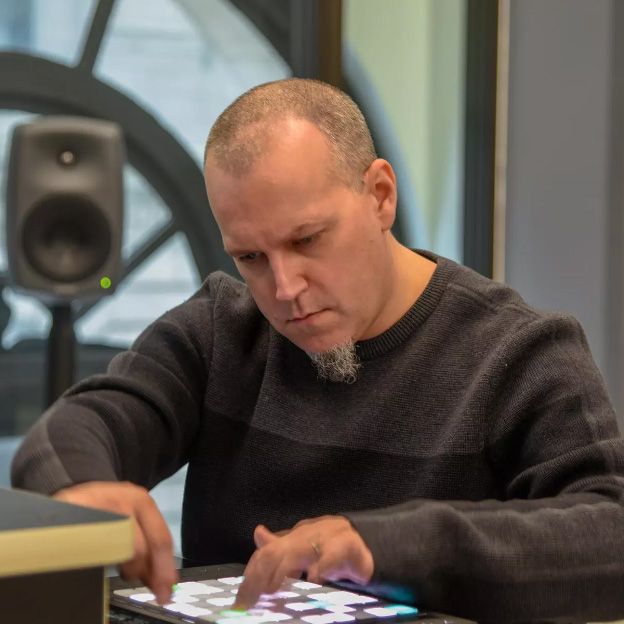 Shawn Greenlee is a composer, sound artist, and
Shawn Greenlee is a composer, sound artist, and 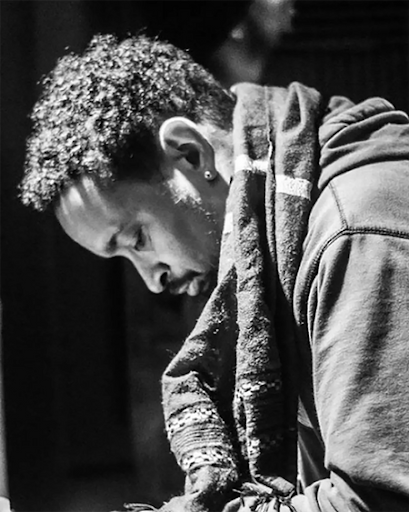 Michael Demps’ practice is fueled by a fascination with the nature of being—being in one’s body and more specifically, the social structures that confine the body’s ability to move through the world. It is important to understand that such experiences are different in different bodies in order to develop more empathetic relationships with one another, and celebrate more complex and nuanced ways of being. As an artist, Demps is dedicated to exploring notions of the Black interior through making. This interest permeates his collaborative and non-collaborative projects. During the past year he has had the opportunity to exhibit work that contends with the mapping of an interior interconnectivity to the collective through the personal and through somatic activation. His work ranges from abstract monoprint image generation and ghost printing to creating objects that serve as spiritual markings put forth to hold space for self-discovery, recovery and recuperation. These generative systems of making through recontextualization, improvisation and repetition serve as grounding values of his practice and exist in a fugitive space against authorship as a gatekeeper of racism and capitalism. The current cultural shift due to the pandemic has left Demps searching for ways to move his practice forward and engage with audiences in new ways.
Michael Demps’ practice is fueled by a fascination with the nature of being—being in one’s body and more specifically, the social structures that confine the body’s ability to move through the world. It is important to understand that such experiences are different in different bodies in order to develop more empathetic relationships with one another, and celebrate more complex and nuanced ways of being. As an artist, Demps is dedicated to exploring notions of the Black interior through making. This interest permeates his collaborative and non-collaborative projects. During the past year he has had the opportunity to exhibit work that contends with the mapping of an interior interconnectivity to the collective through the personal and through somatic activation. His work ranges from abstract monoprint image generation and ghost printing to creating objects that serve as spiritual markings put forth to hold space for self-discovery, recovery and recuperation. These generative systems of making through recontextualization, improvisation and repetition serve as grounding values of his practice and exist in a fugitive space against authorship as a gatekeeper of racism and capitalism. The current cultural shift due to the pandemic has left Demps searching for ways to move his practice forward and engage with audiences in new ways. 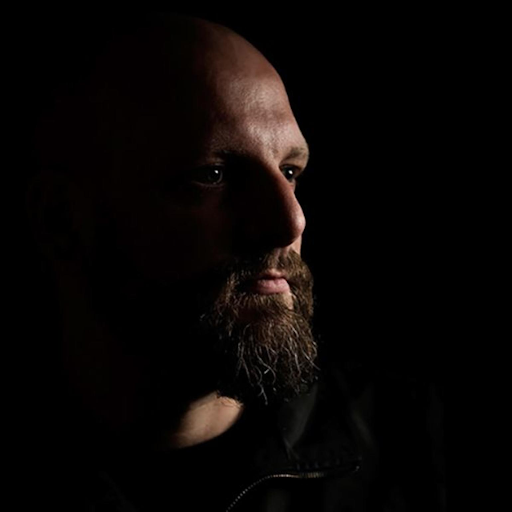 Mark Cetilia is an interdisciplinary artist whose practice exists at the nexus of analog and digital technologies. Exploring the possibilities of generative systems, Cetilia’s work is an exercise in carefully controlled chaos. Over the past two decades, he has worked to develop idiomatic performance systems utilizing custom hardware and software, manifesting in a rich tapestry of sound and image.
Mark Cetilia is an interdisciplinary artist whose practice exists at the nexus of analog and digital technologies. Exploring the possibilities of generative systems, Cetilia’s work is an exercise in carefully controlled chaos. Over the past two decades, he has worked to develop idiomatic performance systems utilizing custom hardware and software, manifesting in a rich tapestry of sound and image.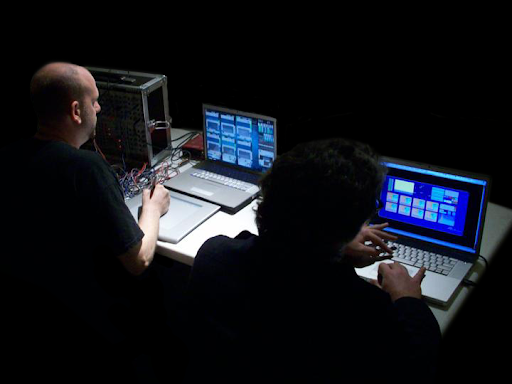 A collaboration between Mark Cetilia and Joe Cantrell, Redux exists as an exercise in destruction and recombination. We examine existing technologies, break them down to their essential components, and re-assemble them into new entities. This practice brings new ideas to light about not only the nature of our technological objects, but also the structures that enable them to exist. In rethinking how systems can be perceived, new ways of using and combining them can be enabled. This includes natural ecosystems, technological infrastructure, and societal interconnections. Redux is the cut that cures — the mosaic that can only emerge when the original is shattered.
A collaboration between Mark Cetilia and Joe Cantrell, Redux exists as an exercise in destruction and recombination. We examine existing technologies, break them down to their essential components, and re-assemble them into new entities. This practice brings new ideas to light about not only the nature of our technological objects, but also the structures that enable them to exist. In rethinking how systems can be perceived, new ways of using and combining them can be enabled. This includes natural ecosystems, technological infrastructure, and societal interconnections. Redux is the cut that cures — the mosaic that can only emerge when the original is shattered.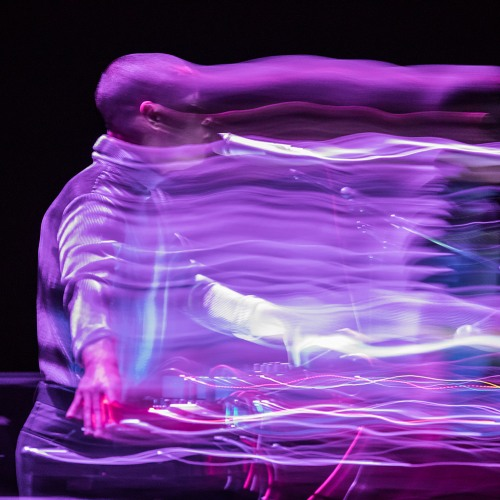 Will Johnson is an audio artist from the Bronx, New York. His work centers on blackness -- the material and immaterial conditions of space that shape sound into movement and historical record. He holds a B.A. in Interdisciplinary Studies from NYU-Gallatin. He is the recipient of the Jerome Foundation Fellowship for Sound Art/Composition (2018) and the McKnight Foundation Fellowship for Musicians (2019). His commercial work includes licensed sound for Acura, Beats Electronics, HBO and collaborative contributions to 2016 grammy-winning best electronic album Skin. His live performances have been commissioned by Lincoln Center, the Kitchen and MASS MoCA.
Will Johnson is an audio artist from the Bronx, New York. His work centers on blackness -- the material and immaterial conditions of space that shape sound into movement and historical record. He holds a B.A. in Interdisciplinary Studies from NYU-Gallatin. He is the recipient of the Jerome Foundation Fellowship for Sound Art/Composition (2018) and the McKnight Foundation Fellowship for Musicians (2019). His commercial work includes licensed sound for Acura, Beats Electronics, HBO and collaborative contributions to 2016 grammy-winning best electronic album Skin. His live performances have been commissioned by Lincoln Center, the Kitchen and MASS MoCA.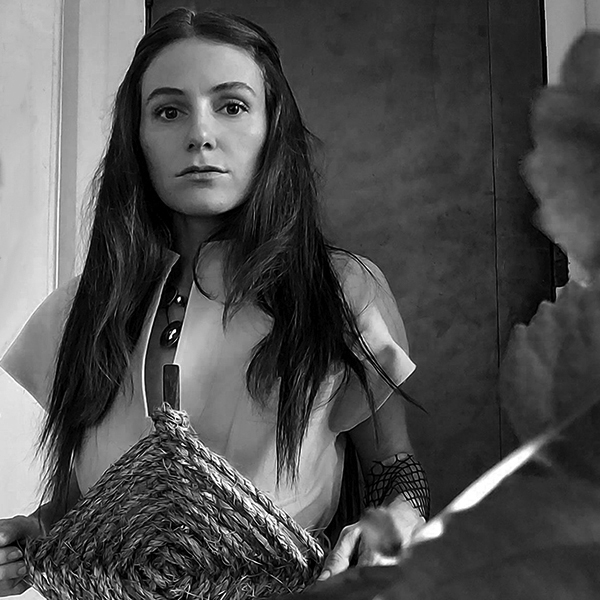 Maralie Armstrong’s multi-mediated works emphasize the evolution of spiritual and emotional expression via technology and seduce poetics from human-machine interaction. Her research probes the multifaceted interrelationships of gender and spirituality as well as appropriated uses of technologies throughout time. Her work includes performance, sculpture, photography, video and sound.
Maralie Armstrong’s multi-mediated works emphasize the evolution of spiritual and emotional expression via technology and seduce poetics from human-machine interaction. Her research probes the multifaceted interrelationships of gender and spirituality as well as appropriated uses of technologies throughout time. Her work includes performance, sculpture, photography, video and sound.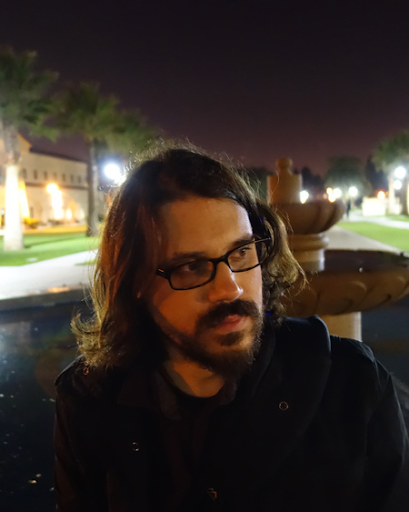 Alex Chechile is a sound artist, composer, and electronic artist whose work develops in parallel with research in neuroscience, psychoacoustics, and the biomechanics of hearing. With a particular interest in the relationship between sound and the body, his immersive compositions, installations, and performances aim to bring transparency to otherwise invisible processes in biological and technological systems.
Alex Chechile is a sound artist, composer, and electronic artist whose work develops in parallel with research in neuroscience, psychoacoustics, and the biomechanics of hearing. With a particular interest in the relationship between sound and the body, his immersive compositions, installations, and performances aim to bring transparency to otherwise invisible processes in biological and technological systems.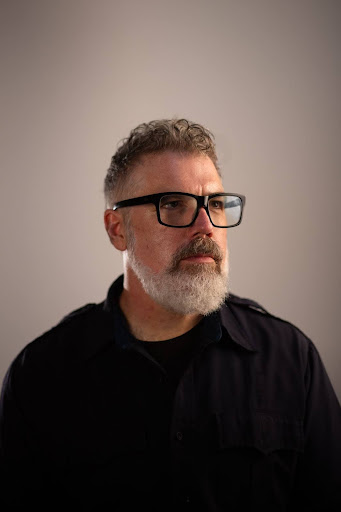 Joe Cantrell is a sound artist specializing in installations, compositions, and performances inspired by the consequences of technological objects and practices. His work examines the incessant acceleration of technology and media production, its ownership, and the waste it produces. In the rush to get the newest and shiniest things, the less new and less shiny are cast off: today's hot commodity is often tomorrow's garbage. In solidarity with these abandoned objects and the hands that put them together, Joe makes electronic feedback soundscapes using only discarded, obsolete and / or broken technology. It's a physical collaboration: the machines listen to themselves and act accordingly. Joe offers suggestions to them and they make sound together.
Joe Cantrell is a sound artist specializing in installations, compositions, and performances inspired by the consequences of technological objects and practices. His work examines the incessant acceleration of technology and media production, its ownership, and the waste it produces. In the rush to get the newest and shiniest things, the less new and less shiny are cast off: today's hot commodity is often tomorrow's garbage. In solidarity with these abandoned objects and the hands that put them together, Joe makes electronic feedback soundscapes using only discarded, obsolete and / or broken technology. It's a physical collaboration: the machines listen to themselves and act accordingly. Joe offers suggestions to them and they make sound together.